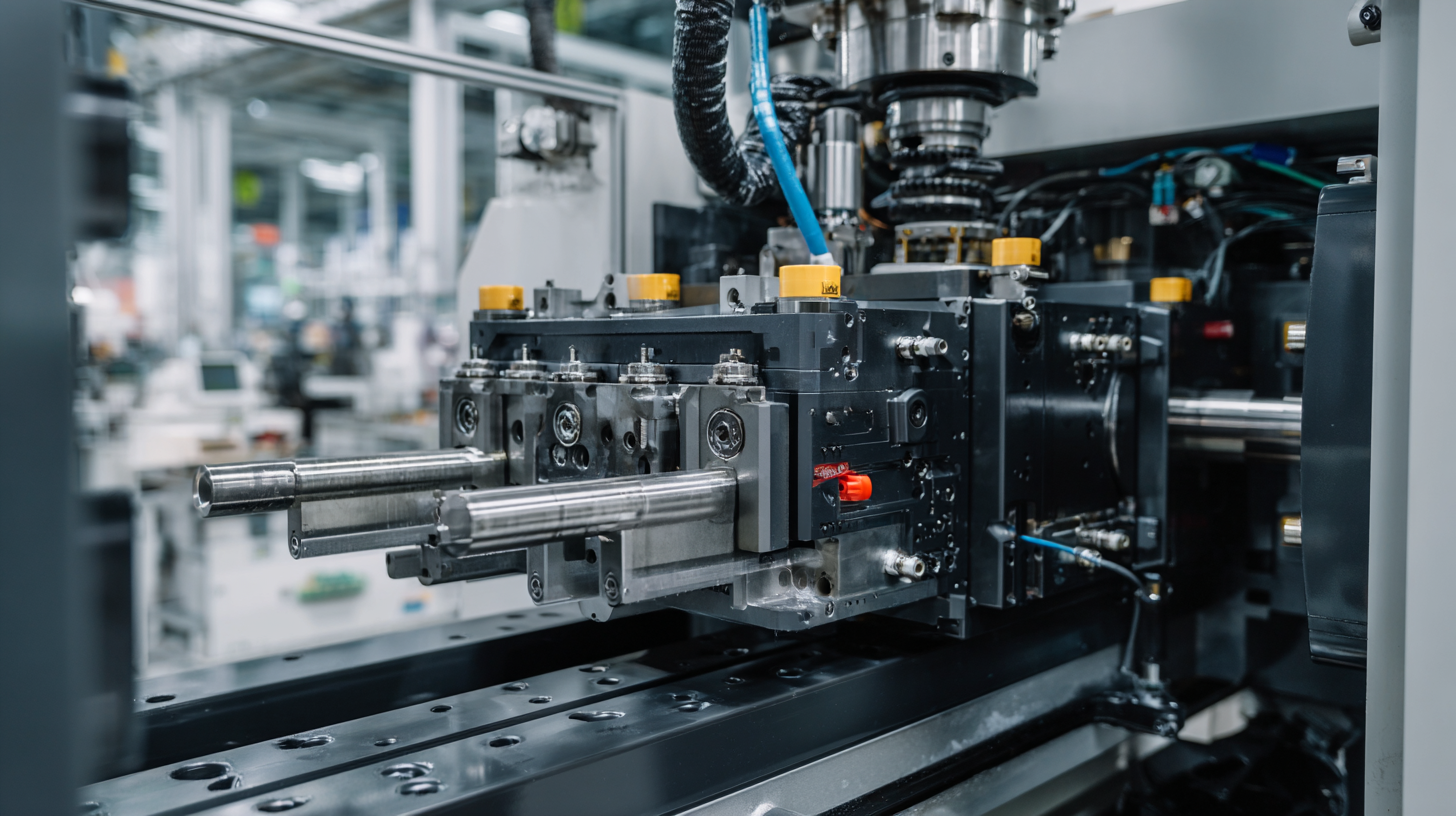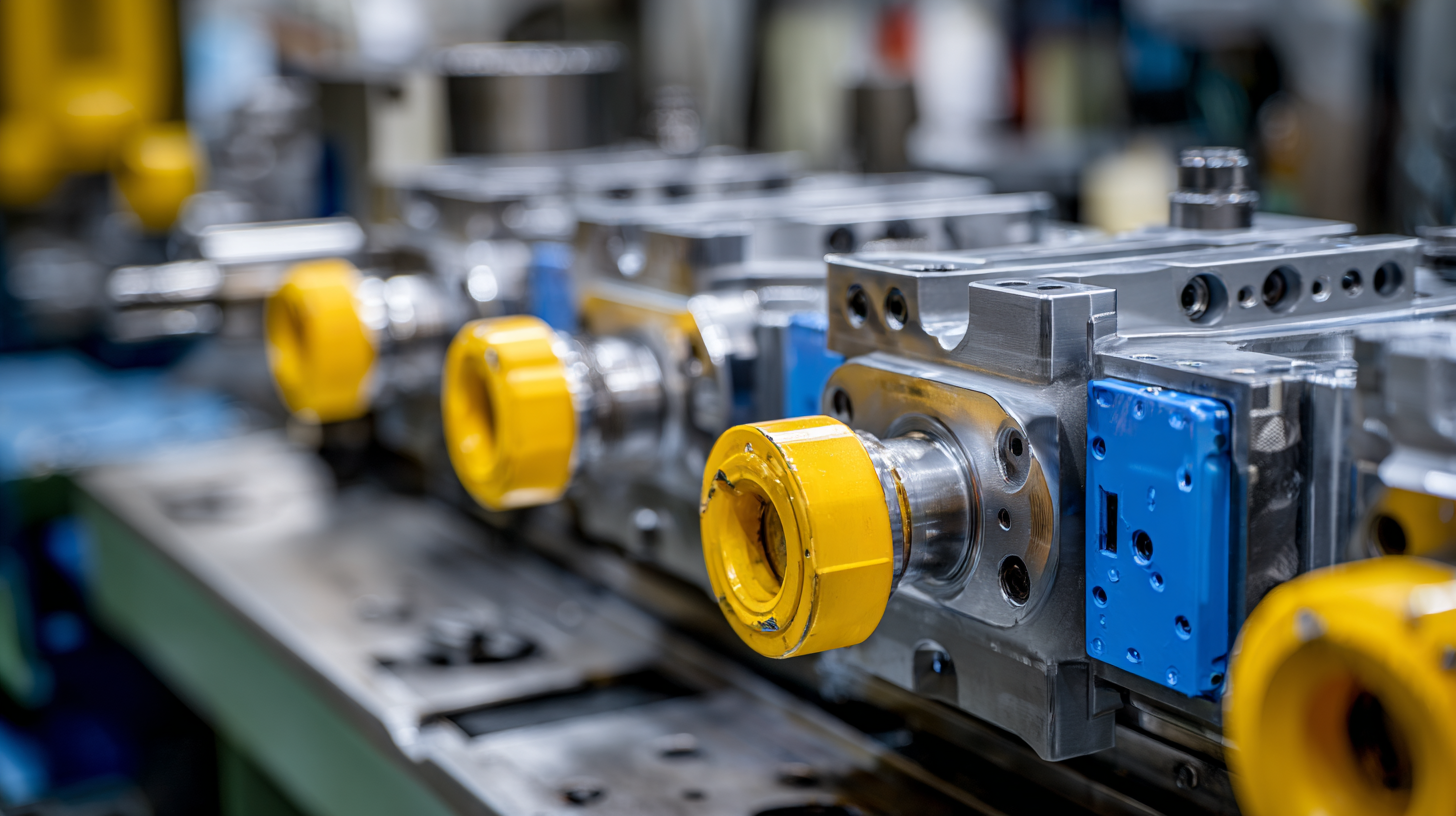In today's competitive automotive industry, the efficiency of production processes and reduction of costs are paramount, particularly when it comes to Injection Molding Automotive Parts. According to a recent report by Grand View Research, the global automotive injection molding market is expected to reach USD 33.6 billion by 2025, driven by the increasing demand for lightweight and durable components. After-sales service has emerged as a critical factor in managing operational expenses, enabling manufacturers to minimize repair costs significantly. By implementing robust after-sales strategies, companies can not only bolster customer satisfaction but also enhance the longevity and performance of injection-molded parts. This guide highlights the top five benefits of after-sales services that play a crucial role in reducing repair costs associated with the production of high-quality Injection Molding Automotive Parts, ensuring a sustainable edge in the market.

After-sales service plays a pivotal role in enhancing cost efficiency within the automotive parts sector. According to the 2023 Auto Industry Trends report, effective after-sales services can reduce overall repair costs by up to 20%, ensuring that manufacturers not only meet customer expectations but also maintain profitability. With the complexities involved in injection molding automotive parts, leveraging after-sales support can significantly mitigate issues arising from defects or operational failures. This proactive service approach enables manufacturers to take corrective actions swiftly, resulting in decreased downtime and higher customer satisfaction rates.
Moreover, a study by the Automotive Parts Manufacturer's Association reveals that companies focusing on robust after-sales support experience up to 15% higher customer retention rates. With today's competitive market, retaining customers is crucial for long-term success. By providing exceptional after-sales service, businesses can create a loyal customer base that is less likely to switch to competitors, ultimately reducing the costs associated with acquiring new clients. These statistics underscore the importance of integrating a comprehensive after-sales strategy in the automotive parts industry, particularly for those specializing in injection molding solutions.

In the competitive landscape of the automotive industry, the significance of reliable after-sales support cannot be overstated. A comprehensive report by the Automotive Aftermarket Industry Association highlights that companies with strong after-sales service can reduce repair costs by as much as 30%. This is particularly crucial for manufacturers of injection molding automotive parts, where precision and quality are paramount. Implementing effective after-sales strategies not only decreases long-term maintenance expenses but also enhances customer satisfaction and loyalty.

Furthermore, enhancing customer trust through robust after-sales support serves as a powerful differentiator in today’s market. According to a study conducted by PwC, 64% of consumers feel that timely and effective customer service is key to their purchasing decisions. Providing dependable after-sales service can therefore significantly influence the perception of a brand. Additionally, improving communication and support channels can result in a 25% decrease in customer complaints, as noted by the Customer Service Institute. By prioritizing after-sales service, automotive manufacturers can forge stronger relationships with their clients, ultimately driving growth and ensuring sustainability in a dynamic market.
Effective warranty management plays a crucial role in minimizing long-term repair costs for automotive parts manufactured through injection molding. A well-structured warranty can not only enhance customer satisfaction but also significantly reduce the financial burden associated with repairs. According to a study by the Automotive Industry Action Group (AIAG), companies with robust warranty management processes can reduce warranty claims costs by up to 30%. This reduction translates to substantial savings over time, allowing manufacturers to allocate resources more efficiently.
Moreover, leveraging data analytics in warranty management has shown to reduce the root causes of product failures, leading to fewer warranty claims. A report from the International Society of Automotive Engineers (SAE) indicates that implementing predictive analytics can decrease warranty-related expenses by nearly 25%. By analyzing trends and customer feedback, manufacturers can improve product design and reliability, ultimately leading to reduced repair incidents and fostering long-term relationships with customers. As injection molding continues to dominate the automotive parts sector, effective warranty management will be key to not only controlling costs but also enhancing product quality and customer loyalty.
Effective communication is a cornerstone of successful after-sales service, particularly in the realm of automotive parts manufacturing. Streamlining communication channels allows manufacturers and customers to address issues swiftly, reducing the back-and-forth that often complicates problem resolution. By implementing integrated communication platforms, companies can ensure that all parties involved have real-time access to pertinent information, which facilitates quicker identification of problems and solutions. This proactive approach significantly reduces downtime, ultimately lowering repair costs and enhancing customer satisfaction.
Moreover, improved communication fosters a collaborative environment where feedback can be easily shared. By encouraging open dialogue between engineers, sales teams, and customers, manufacturers can gain invaluable insights into recurring issues and potential improvements. This feedback loop not only helps in refining product designs but also aids in developing better support resources, such as detailed manuals and troubleshooting guides. Overall, prioritizing streamlined communication not only enhances the after-sales service experience but also plays a vital role in minimizing repair costs and promoting long-term partnerships with customers.
In today's competitive automotive industry, after-sales service plays a pivotal role in reducing repair costs for injection molding automotive parts. Leveraging data analytics can significantly enhance service strategies, enabling companies to identify common failure patterns and implement proactive maintenance solutions. According to a recent report by MarketsandMarkets, predictive maintenance can reduce repair costs by up to 25%, showcasing the value of data-driven decision-making.
Implementing effective data analytics not only helps in assessing customer needs but also streamlines logistics for parts replacement. Companies that utilize big data analytics can enhance response times by up to 50%, as indicated by a report from Gartner. This agility in after-sales service not only improves customer satisfaction but also minimizes downtime, which is critical in the automotive sector.
Tip: Invest in analytics software that provides real-time insights into service requests and repair histories, allowing for more precise inventory management and resource allocation.
Tip: Regularly train your service personnel in data interpretation to ensure they can leverage analytics effectively, translating data into actionable strategies for better service outcomes.
Utilizing these analytics-driven strategies can foster a more resilient after-sales service framework, significantly cutting repair costs and boosting overall operational efficiency.
